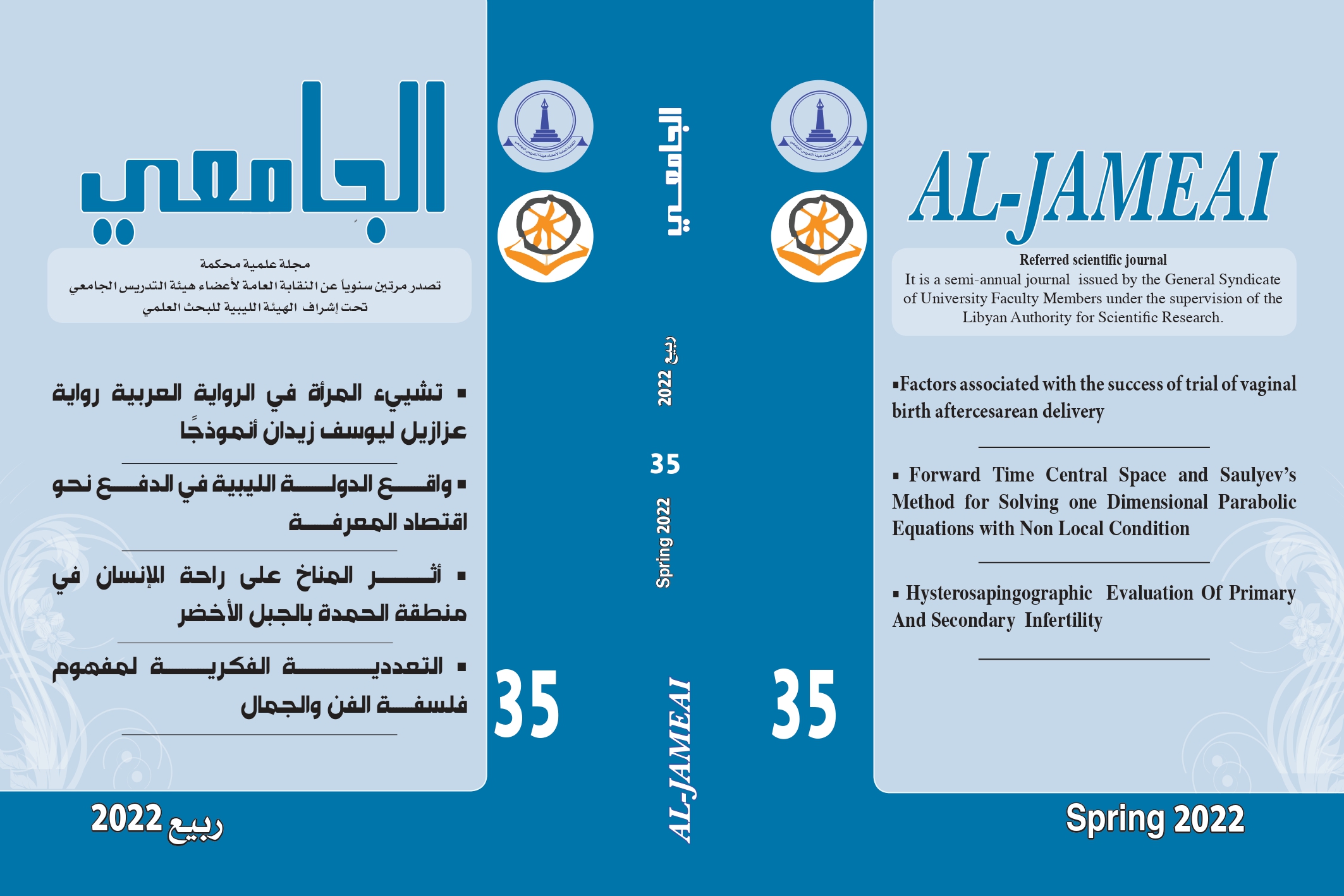مدى التزام مصرف الجمهورية بالمعيار المصرفي رقم (1) المنظم لعملية المرابحة الصادر عن مصرف ليبيا المركزي
Abstract
الملخص:
هدفت هذه الدراسة إلى معرفة مدى التزام مصرف الجمهورية بمعيار المرابحة رقم (1) الصادر عن مصرف ليبيا المركزي، وكذلك التعرف على الأسباب الكامنة وراء عدم الالتزام ان وجد، وأعتمد الباحثون على المنهج الوصفي التحليلي باستخدام تحليل ثنائي الأبعاد الذي يجمع بين الاستبانة وتحليل المحتوى، حيث تم تصميم جداول تحليلية متضمنة متطلبات المعيار وفق مؤشر (index)، لغرض قياس درجة الالتزام بالمعيار للسنوات 2015 ،2016، 2017،من خلال جمع البيانات والمعلومات اللازمة من المصرف المتمثلة في كتيب المرابحة، وعقود المرابحة، والقوائم المالية، وتم استخدام الاستبانة للتعرف على أسباب عدم الالتزام، وتوصلت الدراسة إلى أن مستوى التزام مصرف الجمهورية بمعيار المرابحة الصادر عن مصرف ليبيا المركزي كان بشكل جزئي بنسبة 65.5%، وإن عدم الالتزام بشكل كامل بمتطلبات المعيار راجع إلى أسباب عدة أولها عدم قيام مصرف الجمهورية بإصدار أو تحديث كتيب المرابحة ليتوافق مع متطلبات معيار المرابحة رقم (1) الصادر عن مصرف ليبيا المركزي، يليه سبب ثان وهو ليس لدى العاملين بالمصرف الخبرة العملية الكافية بمعايير الصيرفة الإسلامية ومعالجاتها المحاسبية، واقتصرت الدراسة على مصرف الجمهورية باعتباره الرائد في مجال الصيرفة الاسلامية، ويمكن توسيع نطاقها في دراسات مستقبلية بحيث تشمل مقارنة لكافة المصارف التي تتعامل بالصيرفة الاسلامية في ليبيا، المساهمة: تعد هذه الدراسة الأولى في البيئة الليبية التي تختبر مدى الالتزام بالمعيار رقم (1) الصادر عن مصرف ليبيا المركزي ، وتعد نتائجها ذات قيمة لمصرف الجمهورية والمصرف المركزي، والصيرفة الاسلامية في ليبيا ككل.
Abstract:
The aim of this study is to identify and investigate the level of which the Bank of the Jumhouria has committed to the Murabaha Standard No. (1) issued by the Central Bank of Libya. To achieve this goal, analytical tables was designed to include the requirements of the index for the period between 2015 to 2017. To measure the degree of compliance with the Standard. Necessary data and information were collected from the Bank in the Murabaha Handbook, Murabaha Contracts and Financial Statements, during this period .The researcher relied on the analytical descriptive method using a two-dimensional analysis, that combines the questionnaire and the analysis of the content.
The study concluded that, the level of commitment of the Jumhouria Bank to the Murabaha standard was only 65.5%. The failure to fully comply with the requirements of standard, was due to several reasons: First, the Jumhouria Bank did not issue a new update Murabaha booklet, Mached With the requirements of standard No.( 1) issued by the Central Bank of Libya. The second reason, the Bank's employees do not have the sufficient practical experience in Islamic banking standards and accounting procedures. The study recommended updating the bank's Murabaha booklet, which complies with the requirements of the Murabaha standard issued by the Central Bank of Libya, and providing the best training programs for the bank's staff to be qualified to work with the standards of Islamic banking. The Central Bank, has a major role to guide banks and force them to comply with Islamic banking standards.
Downloads









